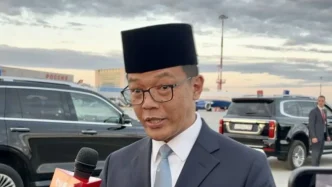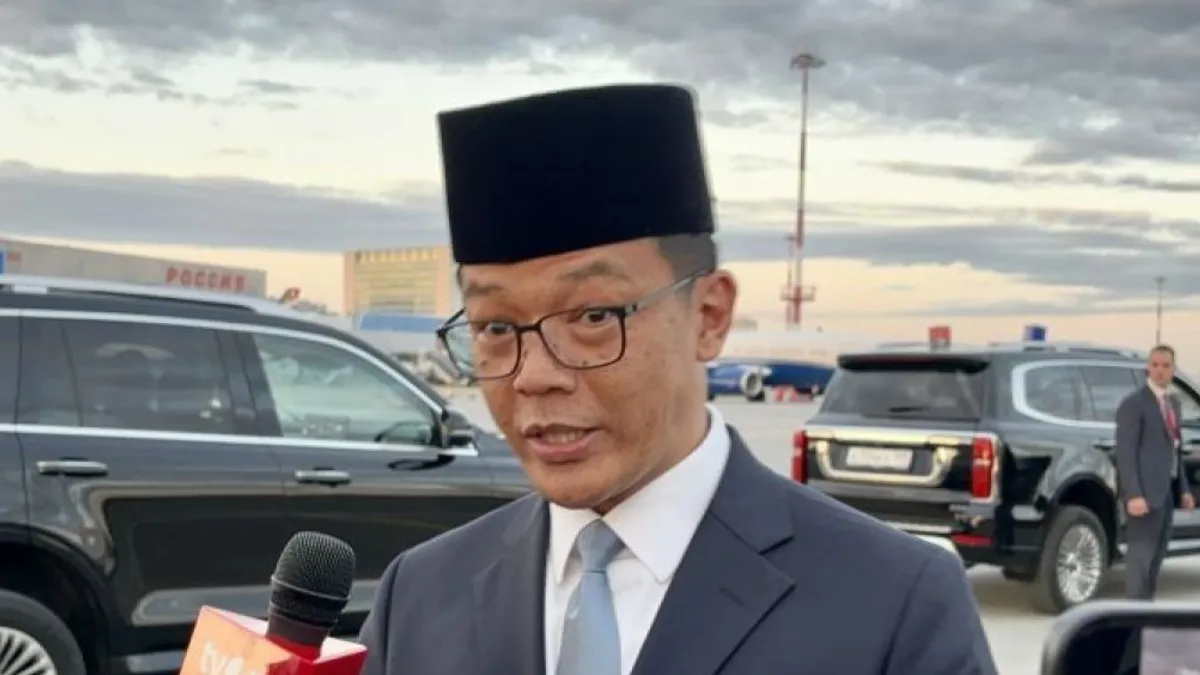Indonesia, a nation long committed to a “free and active” foreign policy that champions independence and global peace, finds itself at a crossroads following the US airstrikes on Iran’s Natanz nuclear enrichment facility on June 24, 2025. Satellite imagery provided by Maxar Technologies revealed significant damage, with craters over underground centrifuge halls now filled and covered with dirt. Yet, as of June 26, neither President Prabowo Subianto nor Foreign Minister Sugiono has issued an official statement on the incident, drawing scrutiny both domestically and internationally. This silence stands in stark contrast to Indonesia’s historical readiness to condemn violations of international norms and raises questions about its current diplomatic stance.
US Action and Regional Reactions
The US military action, ordered by President Donald Trump, targeted Iran’s nuclear development sites, an act that several nations have criticized as a violation of the United Nations Charter. Within the Association of Southeast Asian Nations (ASEAN), at least three of the ten member states—Malaysia, Vietnam, and Thailand—have publicly expressed concern or called for de-escalation. Malaysian Prime Minister Anwar Ibrahim voiced apprehension over the strikes, while Vietnam’s Foreign Affairs Ministry highlighted the risks of escalating conflict. Thailand urged an immediate cessation of violence and a return to peaceful dialogue. Against this backdrop, Indonesia’s lack of response appears conspicuous, especially given its swift condemnation of Israel’s bombing of Tehran on June 13, 2025, when the Foreign Ministry labeled the act as “unlawful” on social media platforms.
The only official comment from Indonesia came from Coordinating Minister for Political and Security Affairs Budi Gunawan, who issued a written statement urging “all sides to return to the negotiating table and pursue a permanent resolution.” He also emphasized the need to protect Indonesian citizens in conflict zones across the Middle East, including Iran and Israel. While this call for diplomacy reflects a cautious approach, it stops short of addressing the specifics of the US action, leaving observers to question whether this is a deliberate strategy or a sign of hesitation.
A Departure from Precedent
Indonesia’s current reticence marks a notable departure from its past responses to international crises. Under former President Joko “Jokowi” Widodo, the government promptly condemned Russia’s invasion of Ukraine in February 2022. Although Jokowi avoided naming Russia directly, his public call to “stop the war” and participation in international condemnation at the UN General Assembly underscored Indonesia’s commitment to a rules-based global order. President Prabowo’s silence on the US airstrikes, by contrast, has fueled speculation about the motivations behind this shift.
Some analysts suggest that domestic sensitivities or strategic considerations may be influencing the government’s stance. Indonesia’s “free and active” foreign policy, established in the post-independence era, seeks to avoid alignment with major powers while actively contributing to global peace. Remaining silent on an issue as significant as a unilateral military strike by a superpower could be interpreted as a pragmatic move to avoid confrontation, particularly with an unpredictable US administration under President Trump. However, this approach risks undermining Indonesia’s credibility as a middle-power player committed to multilateralism and international law.
Trade and Diplomatic Calculations
One potential factor in Indonesia’s muted response is its economic relationship with the United States. Under Trump’s trade war policies, Indonesia has faced significant tariffs on its exports to the US, with a reported 32 percent tariff imposed in retaliation for what the US claims is a 64 percent tariff on American goods. Finance Minister Sri Mulyani recently noted that the US recorded a trade deficit of US$19.3 billion with Indonesia in 2024, positioning Indonesia as the 15th largest contributor to the US trade deficit. With ongoing trade negotiations likely in play, some observers speculate that Jakarta may be avoiding public criticism of the US to safeguard economic interests.
Domestically, the government’s silence has not gone unnoticed. The House of Representatives has expressed plans to summon Foreign Minister Sugiono for discussions, though it has also signaled support for the administration’s cautious approach. Public sentiment, however, appears less forgiving. Many Indonesians view the lack of an official statement as a sign of weakness or fear of retaliation from the US, particularly given Trump’s reputation for unpredictable responses. This perception could erode trust in Prabowo’s leadership on the global stage, especially as his broader campaign for global peace and stability hinges on consistency and moral authority.
Regional and Global Implications
Indonesia’s silence carries implications beyond its borders. As the largest nation in ASEAN and a key advocate for regional stability, its voice often shapes collective responses to international crises. The contrast between Indonesia’s current position and the vocal stances of other ASEAN members risks diminishing its influence within the bloc. Malaysia, Vietnam, and Thailand’s readiness to address the US airstrikes highlights a willingness to uphold international norms, even at the risk of straining relations with a major power. If Indonesia continues to refrain from comment, it may cede ground to these nations as moral leaders in the region.
Globally, Indonesia’s hesitation could hinder its ability to mediate future conflicts or champion multilateral solutions. The nation has historically positioned itself as a bridge between conflicting parties, leveraging its non-aligned status to facilitate dialogue. However, failing to address a clear breach of sovereignty, such as the US strikes on Iran, may weaken its standing as a credible mediator. This is particularly concerning given the escalating tensions in the Middle East, where Iran has already retaliated with a strike on a US military base in Qatar and reached a temporary ceasefire with Israel after a 12-day conflict.
Domestic Pressure and the Path Forward
Within Indonesia, the government faces mounting pressure to clarify its position. Civil society groups and political commentators have called for President Prabowo to issue a statement, even if framed diplomatically with terms like “concern” or “regret” to avoid direct criticism of the US. Such a move could help balance Indonesia’s commitment to independence with the need to maintain constructive relations with Washington. Without a clear stance, speculation about the government’s motives—ranging from fear of economic reprisals to strategic avoidance of conflict—will likely persist.
The broader challenge for Prabowo’s administration lies in reconciling its foreign policy principles with the realities of a complex geopolitical landscape. Indonesia’s advocacy for a rules-based world order demands consistency, yet the current silence risks projecting inconsistency. This could have lasting effects on Prabowo’s legacy, particularly if his government is perceived as prioritizing pragmatism over principle during a critical moment in global affairs.
A Critical Juncture
As the dust settles over the Natanz facility and the international community grapples with the fallout of the US airstrikes, Indonesia stands at a critical juncture. President Prabowo’s decision on whether to speak out will not only shape domestic perceptions of his leadership but also define Indonesia’s role on the world stage. While the government may have valid reasons for its caution, the cost of silence could be a diminished moral authority and a missed opportunity to reinforce its commitment to global peace.
For now, the world watches and waits. Will Indonesia reclaim its voice as a champion of sovereignty and dialogue, or will its silence signal a new era of diplomatic restraint? As tensions in the Middle East continue to simmer, the answer to this question may carry consequences far beyond Jakarta’s borders.















